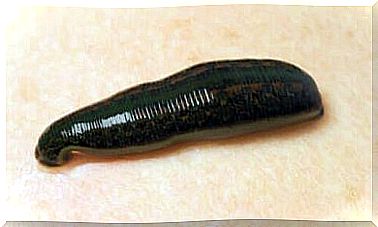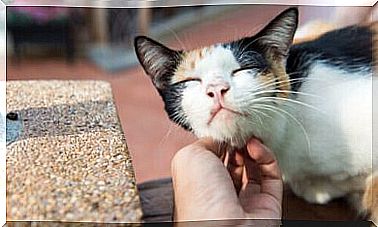Intestinal Parasites: Tapeworms And Roundworms

Tapeworms and roundworms can cause serious health problems for our pets. These intestinal parasites must be removed so that they do not harm your dog or cat’s health. But what is the difference between them?
Intestinal Parasites: Tapeworms

Tapeworms are also known as flatworms. They are worms and their body is tape-like that can reach 10 meters in length. It is sometimes called a loner.
Tapeworms are the main intestinal parasites of vertebrates, especially mammals and birds. They live in the gut and are flat.
When digested food passes through the intestine, tapeworms take advantage of the food through suction. Absorb these nutrients through a suction cup.
The body of a tapeworm is flat dorsoventral and comprises a series of segments that are connected to adjacent ones. Each segment is called a proglottid and each segment is able to live on its own.
In fact, each proglottid can be separated from the main body and become a complete worm, which then reproduces. Tapeworm innervation is considered to be very primitive, with five nerves and ganglia.
Therefore, the interconnection is somewhat weak, but that has led to them being very effective in dispersing between host organisms.
This type of parasite is very common among dogs and cats. It can be diagnosed by observing the feces of animals.
Symptoms are stomachaches in our animals, nervousness, vomiting and convulsions.
To remove tapeworms, Praziquantel is used, which must be prescribed by your veterinarian and whose dose depends on the weight of your animal.
On the other hand, note that fleas are also a form of tapeworm of the Dipylidium caninum type.
Usually, they are common in dogs and cats and to eliminate them, the treatment must be done not only in the animal, but also in its immediate environment.
Intestinal Parasites: Roundworms

Nematoid worms are also known as roundworms. There are about a million species of nematodes.
Most nematodes, about 16,000 species, are parasites. The largest of them can reach two centimeters in length, but their average size is about 2.5 millimeters.
Smaller species cannot be seen except under a microscope.
Roundworms affect the intestines of dogs, cats and other animals. In pets, it can cause intestinal inflammation, which is usually accompanied by diarrhea, vomiting, anemia and weight loss.
In puppies, you can detect worms if you notice your dog’s belly is swollen. It is also important to check your pet’s stool.
Nematodes have a complete digestive system, the mouth is at one end of the body, while the anus is at the other end.
The mouth is equipped with three lips, but sometimes the number of lips can also be six.
This type of worm can be controlled by taking care of your pet’s hygiene.
It is very important that your dog is not in contact with the feces of other animals that have roundworms, which can be transmitted through the tongue or when your pet rubs itself on a dirty, contaminated surface.
This type of parasite can also be transmitted to humans, so it is important that whenever you pet your dog, you wash your hands thoroughly.
It is very important that your pets are dewormed frequently.
However, once the medication is administered, it is necessary for the veterinarian to carry out a test to see if your pet is already free of this type of condition.
A stool test, which involves taking a stool sample from your pet for analysis, can indicate this.
Animals, depending on their routine, should be dewormed regularly. A dog or cat that lives inside a house or apartment and often does not come into contact with other animals should be dewormed at least every three months.
Puppies can be dewormed from the first month of life. Pregnant females should receive medication as recommended by their veterinarian.









